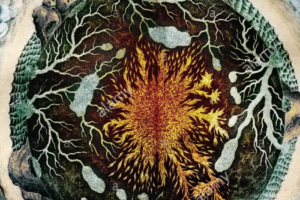Join us for an engaging debate and Q&A session featuring Arshia Ali Azmat and Felix Aerts at Park Ouest. a community organiser and a graphic designer, working with the Brussels Centre for Urban Studies as well as on the research project “WELCOMIN – Community Welfare Mixed Infrastructures”. Her work probes the nexus of culture, housing, and politics, aiming to envision a city that is more accommodating for all its residents. With a background in coordinating a cultural network addressing migration and social justice within artistic realms, Arshia brings a unique perspective to urban community welfare.
On the other side, Felix Aerts represents Toestand vzw, a rapidly expanding non-profit focused on revitalizing temporarily vacant spaces for social and cultural uses. Their current initiative transforms the area between Beekkant and Osseghem into Park Ouest—a space for community building, sports, relaxation, and more.
This discussion will delve into the future of the neighbourhood and the ongoing development of Park Ouest. Attendees are invited to contribute their visions for their community’s future, engaging with various scenarios inspired by prospective research. Don’t miss this opportunity to shape the future of your community through active participation and forward-thinking dialogue.



